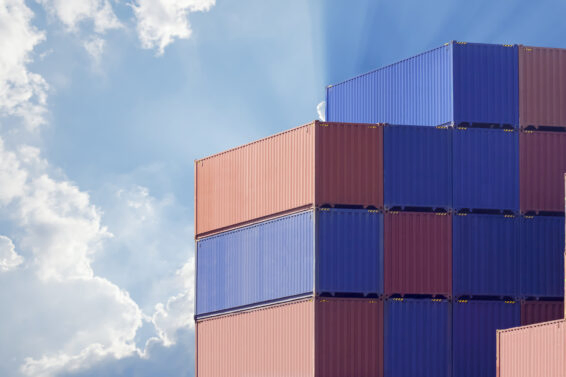Your Genesys Blog Subscription has been confirmed!
Please add genesys@email.genesys.com to your safe sender list to ensure you receive the weekly blog notifications.
Subscribe to our free newsletter and get blog updates in your inbox
Don't Show This Again.

In business, the technology you use shouldn’t matter. What does matter is how you use it to improve your business. Containers are just another technology, but what you can do with them is what matters.
What if we could
… Take the Genesys Multicloud CX™ solution and make it easy to install and upgrade?
… Update software components without disruption on a live system?
… Make it easy to move all or part of your systems to somewhere else, like a private cloud, in days instead of months?
… Speed your adoption of new capabilities (add, configure and run new functionality) in Genesys Multicloud CX?
… Do all these things and increase testing for each release?
Containers can make all of this possible. In this blog, I’ll answer some common questions about containers.
Is a container just another package you put things in?
No, not really. A container is a way to drop software into many environments by standardizing how it “talks” to the world and to local services like data storage.
Containers contain install and configuration scripting for the components inside them, making container deployments consistent. You don’t need to know special configuration voodoo for the software inside containers.
Containers also manage scaling and load-balancing for services that are installed in them. There are still some limits; you might need more hardware for more users, and some containers might have to run in parallel for massive scaling.
What are some of the benefits of containers?
Containers can give you a consistent installation and secure API connections for cloud services in private cloud or in data centers. Containers also let us rewrite code inside them with the same connections (API calls and integrations won’t break with updates). For you, that means faster installs (consistent equals reliable) and less disruption during upgrades.
External API connections to containers also offer flexibility. The addresses of different containers can be anywhere — in the same data center or spread across a gamut of private cloud, public cloud, managed data center services, or your own facilities. You can move the same containers from place to place and remap connections, whenever you need to reallocate loads or costs.
If you have DevOps teams that want to write additional tests or build their own extensions, containers will give them the consistency to automate deployments and testing independently — up to fully validating each update internally.
Why didn’t Genesys use containers before?
We actually did try containers before. We’ve had container releases in 2018 – 2019. Genesys took three different approaches to learn the advantages of different implementations and get customer feedback. It’s a normal Agile process to learn by doing. We used that experience to design the container requirements that now apply across all Genesys Multicloud CX components.
Containers are a mature technology; they’ve been around for more than 10 years. Genesys standardizes on the most popular container flavor — Docker. We also use Kubernetes inside our containers because these technologies each do different things well; and together these two technologies give us flexible tools for the future. For Genesys Multicloud CX, Docker is the container that you’ll install and manage.
These are widely adopted container technologies that your IT teams understand and easily manage if you run Genesys Multicloud CX in your own data centers or a private cloud.
Knowing Your Options
It can be easy to get distracted by technology and lose track of the benefits. But there are some really good reasons to use containers. They make it easier to install and upgrade Genesys Multicloud CX. And they enable us to continually improve Genesys Multicloud CX while maintaining consistent installs and integrations.
Overall, containers give you more options on where you can run workloads — in a data center, on a hosted or private cloud, or on a combination of both in a hybrid cloud. They also give you more options when planning upgrades and added flexibility when mapping future hardware and hosting needs. Containers also offer more choice and flexibility managing critical systems.
To see what Genesys Multicloud CX can do for you, book a demo today.
Subscribe to our free newsletter and get blog updates in your inbox.